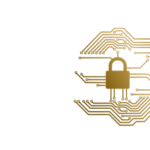Overview
In 2022, a popular educational app was fined $1.5 million for violating the Children’s Online Privacy Protection Act (COPPA) by collecting children’s biometric data without proper consent [1]. This case highlights the critical importance of COPPA compliance, not only to avoid legal penalties but also to safeguard the privacy and well-being of young participants in an increasingly digital world.
As digital research involving minors continues to expand, understanding COPPA’s evolving requirements has become essential for researchers. The law mandates careful handling of children’s sensitive information, such as biometric data and persistent identifiers, ensuring transparency and accountability [2]. However, compliance is no simple task. Researchers must balance the need for robust data collection with COPPA’s stringent consent and data security requirements. Recent amendments in 2025 have further tightened these rules, introducing stricter parental consent protocols and data retention limits [3].
Here we explore COPPA’s complexities, offering actionable strategies to help researchers achieve compliance while upholding the highest ethical standards in their work.
What is COPPA and Why Does it Matter for Researchers?
The Children’s Online Privacy Protection Act (COPPA) is a U.S. federal law enforced by the Federal Trade Commission (FTC) to safeguard the privacy of children under 13. It regulates how personal information is collected, used, and disclosed online, applying to operators of commercial websites, apps, and online services directed at children or those with actual knowledge of collecting data from minors [3].
Originally enacted in 1998 and updated through amendments like the 2025 Final Rule, COPPA mandates verifiable parental consent before collecting, using, or disclosing children’s personal information. While the law primarily targets commercial entities, its reach extends to researchers conducting studies involving children through digital platforms, even in non-commercial or academic settings.
For clinical researchers, COPPA’s relevance is particularly pronounced when studies involve collecting data from children under 13 via online tools. Key requirements include [3]:
- Verifiable Parental Consent: Researchers must obtain explicit consent from parents or guardians before collecting any personal information.
- Transparent Privacy Policies: A clear and comprehensive privacy policy must outline how children’s data will be collected, used, and protected.
- Data Minimization: Only the information necessary for the study should be collected.
- Security Measures: Robust safeguards must be implemented to protect sensitive data from breaches or misuse.
Non-compliance carries serious consequences, including fines of up to $53,088 per violation and reputational harm. Beyond legal risks, adhering to COPPA is an ethical imperative for researchers. It ensures the protection of vulnerable participants and fosters public trust in research practices.
By integrating COPPA’s principles into their workflows, clinical researchers can navigate the complexities of digital data collection involving children while upholding the highest standards of privacy and ethical responsibility.
Recent Changes to COPPA
COPPA has undergone significant updates since its enactment, with the most notable changes occurring in 2013 and 2025. The 2013 amendments expanded the definition of personal information to include persistent identifiers like IP addresses and cookies, which can track a child’s online activity over time [3]. These changes also introduced stricter requirements for obtaining verifiable parental consent and mandated greater transparency in privacy policies.
In 2025, the FTC finalized additional amendments to further strengthen COPPA’s protections. These amendments became effective June 23, 2025, and regulated entities have until April 22, 2026 to comply. Key updates include:
- Expanded Definition of Personal Information: The 2025 amendments explicitly include biometric data (e.g., fingerprints, voiceprints) and government-issued identifiers (e.g., Social Security numbers) as protected personal information [4].
- Stricter Consent Requirements: Researchers must now use more reliable methods to verify parental consent, such as government-issued ID checks or facial recognition technology [5].
- Enhanced Data Security and Retention Rules: Operators are required to implement stronger safeguards to protect children’s data and establish clear data retention policies [3].
For researchers, these changes have significant implications. The inclusion of biometric data and stricter consent requirements means researchers must adopt more rigorous protocols for data collection and parental consent. Additionally, the emphasis on data security and retention necessitates robust safeguards to protect sensitive information. These updates underscore the importance of staying informed about COPPA’s evolving requirements to ensure compliance and protect the privacy of young participants.
Key Considerations for Researchers
When conducting research involving children under 13, it is essential to determine whether COPPA applies to your study. COPPA applies if your research involves collecting personal information from children through online platforms, even if the research is non-commercial or academic. This includes data collected via websites, apps, or digital tools [3].
One of the most critical aspects of COPPA compliance is obtaining verifiable parental consent. Researchers must use reliable methods to confirm that a parent or guardian has consented to their child’s participation. This can include signed consent forms, video calls, or verified credit card transactions [3]. The 2025 amendments have further tightened these requirements, emphasizing the need for secure and transparent consent processes.
Data collection, storage, and transparency are also key considerations. Researchers must adhere to the principle of data minimization, collecting only the information necessary for the study and retaining it for no longer than required. Additionally, robust data security measures, such as encryption and access controls, must be implemented to protect children’s sensitive information [6]. Transparency is equally important; researchers must provide clear and accessible privacy policies that explain how data will be collected, used, and stored.
Ethical research practices involving children go beyond legal compliance. Researchers must prioritize the well-being and privacy of young participants, ensuring that their methods align with both COPPA and broader ethical guidelines [7].
Best Practices for COPPA Compliance in Research
Ensuring COPPA compliance in research requires a proactive and systematic approach. Below are some best practices to help researchers navigate the complexities of the law while protecting children’s privacy:
- Develop a COPPA Compliance Plan:
Start by creating a detailed compliance plan tailored to your research. This plan should outline how you will obtain verifiable parental consent, minimize data collection, and ensure data security. The FTC’s COPPA Safe Harbor Program provides valuable guidance for developing such plans [3]. - Partner with Schools or Organizations:
Collaborating with schools, educational institutions, or organizations that already have COPPA-compliant protocols can simplify the consent process. These partners often have established relationships with parents and can help facilitate communication and consent [8]. - Use COPPA-Compliant Tools and Platforms:
Choose digital tools and platforms that are designed to meet COPPA requirements. These tools often include built-in features for obtaining parental consent, encrypting data, and limiting data retention. Using compliant tools reduces the risk of accidental non-compliance. - Train Your Research Team:
Ensure that all team members understand COPPA’s requirements and their responsibilities. Regular training sessions can help keep the team updated on changes to the law and reinforce best practices for data collection and security [3]. - Regularly Review and Update Practices:
COPPA’s requirements evolve, as seen in the 2025 amendments. Regularly review your compliance plan and update it to reflect current regulations. Staying informed about changes to COPPA and related privacy laws is essential for maintaining compliance.
By following these best practices, researchers can not only meet COPPA’s legal requirements but also demonstrate a commitment to ethical research and the protection of children’s privacy.
Resources for Researchers Navigating COPPA Compliance
Navigating COPPA compliance can be challenging, but researchers have access to a variety of resources to help them understand and meet the law’s requirements.
- CITI Program’s COPPA Course: This course prepares researchers and educational technology developers to navigate COPPA’s legal requirements, conduct compliant research, and engage with digital environments used by children under 13.
- FTC’s COPPA Website: The Federal Trade Commission (FTC) provides a comprehensive guide to COPPA, including FAQs, compliance tips, and updates on recent amendments. This resource is invaluable for understanding the legal nuances of COPPA [3].
- Institutional Review Boards (IRBs): Many universities and research institutions have IRBs that offer guidance on ethical and legal compliance, including COPPA. Consulting your institution’s IRB can help ensure your research aligns with both COPPA and broader ethical standards.
- Privacy and Data Protection Organizations: Organizations like the Future of Privacy Forum (FPF) and the International Association of Privacy Professionals (IAPP) provide resources, webinars, and best practices for COPPA compliance. These organizations often publish guidelines tailored to researchers [9].
- Legal Counsel: For complex research projects, consulting legal experts specializing in privacy law can provide clarity and ensure full compliance with COPPA. Legal counsel can also help draft consent forms and privacy policies.
By leveraging these resources, researchers can confidently navigate COPPA’s requirements while prioritizing the privacy and protection of young participants.
Ensuring COPPA Compliance in Research
Ensuring COPPA compliance is not just a legal obligation but a fundamental ethical responsibility for researchers working with children under 13. As digital landscapes evolve, so do the rules governing online privacy, making it essential for researchers to stay informed and adaptable. The 2025 amendments to COPPA, with their stricter consent and data security requirements, underscore the need for vigilance and proactive measures in protecting children’s privacy.
Researchers must approach COPPA compliance as an ongoing process, regularly updating their practices to align with current regulations and technological advancements. By prioritizing transparency, data minimization, and robust security, researchers can uphold the trust of participants and the integrity of their work.
As the digital world continues to change, researchers are called to lead by example, demonstrating a commitment to ethical research and the protection of young participants. Let this be a reminder to stay informed, stay compliant, and prioritize the well-being of children in every study.
References
1. Federal Trade Commission. “FTC Takes Action Against Company Formerly Known as Weight Watchers for Illegally Collecting Kids’ Sensitive Health Data.” March 4, 2022. Accessed March 17, 2025. https://www.ftc.gov/news-events/news/press-releases/2022/03/ftc-takes-action-against-company-formerly-known-weight-watchers-illegally-collecting-kids-sensitive.
2. Congressional Research Service. “Children’s Online Privacy Protection Act (COPPA): A Legal Overview.” Accessed March 17, 2025. https://www.congress.gov/crs-product/IN12055.
3. Federal Trade Commission. “16 CFR Part 312 – COPPA Final Rule Amendments.” Accessed March 17, 2025. https://www.ftc.gov/legal-library/browse/federal-register-notices/16-cfr-part-312-coppa-final-rule-amendments.
4. Biometric Update. “COPPA Changes Specify Children’s Biometrics and Government IDs for Protection.” January 17, 2025. Accessed March 17, 2025. https://www.biometricupdate.com/202501/coppa-changes-specify-childrens-biometrics-and-government-ids-for-protection.
5. International Association of Privacy Professionals (IAPP). “FTC Finalizes COPPA Rule Amendments.” Accessed March 17, 2025. https://iapp.org/news/a/ftc-finalizes-coppa-rule-amendments.
6. U.S. Federal Trade Commission. “Children’s Online Privacy Protection Rule.” Federal Register 89, no. 8 (January 11, 2024): 2034–2110. Accessed March 17, 2025. https://www.federalregister.gov/documents/2024/01/11/2023-28569/childrens-online-privacy-protection-rule.
7. PatientWing. “HIPAA and GDPR Impact on Clinical Trials.” Accessed March 17, 2025. https://www.patientwing.com/blog/hipaa-and-gdpr-impact-on-clinical-trials.
8. Warmund, Joshua. “Can COPPA Work? An Analysis of the Parental Consent Measures in the Children’s Online Privacy Protection Act.” Fordham Intellectual Property, Media & Entertainment Law Journal 11, no. 1 (2001): 189–232. https://ir.lawnet.fordham.edu/iplj/vol11/iss1/7/.
9. Walturn. “A Comprehensive Guide to COPPA.” Accessed March 17, 2025. https://www.walturn.com/insights/a-comprehensive-guide-to-coppa.








